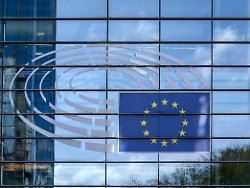Thursday November 11, 2021
Law Against Tax Tricks
EU forces corporations to be more transparent
The tax-saving models of large companies have long been a thorn in the side of the European Union. A new law is now intended to ensure more transparency: not only the tax offices, but also the public will in future be able to view the business books.
In the future, large corporations in the European Union will have to make public how many taxes they pay in each state. The European Parliament approved a law aimed at exposing corporate tax-saving schemes. “It should be made very clear in the case of large international companies where, in which country, they generate profits and, accordingly, where they are also obliged to pay taxes,” said MEP Evelyn Regne, who led the negotiations for Parliament.
In June, after a five-year dispute, the EU institutions agreed on the new rules for so-called “country-by-country reporting”. With the approval of parliament, the law has now been finalized at EU level. Member States now have to implement it within 18 months.
According to the regulation, multinational companies with a worldwide turnover of more than 750 million euros must not only give the tax offices but also the public an insight into their books. This applies to both European and international companies based in the EU. In a country-specific report, they should publish, among other things, the net sales, the profit before taxes and the income taxes actually paid. The number of employees and subsidiaries should also be made transparent. The data should be broken down for all EU countries, as well as for the countries on the EU list of tax havens.
This should give an insight into how tax saving models work. Some companies push their profits to countries with the lowest possible tax rates, even though they were not achieved there, in order to save taxes. This happens within the EU, but also worldwide.
